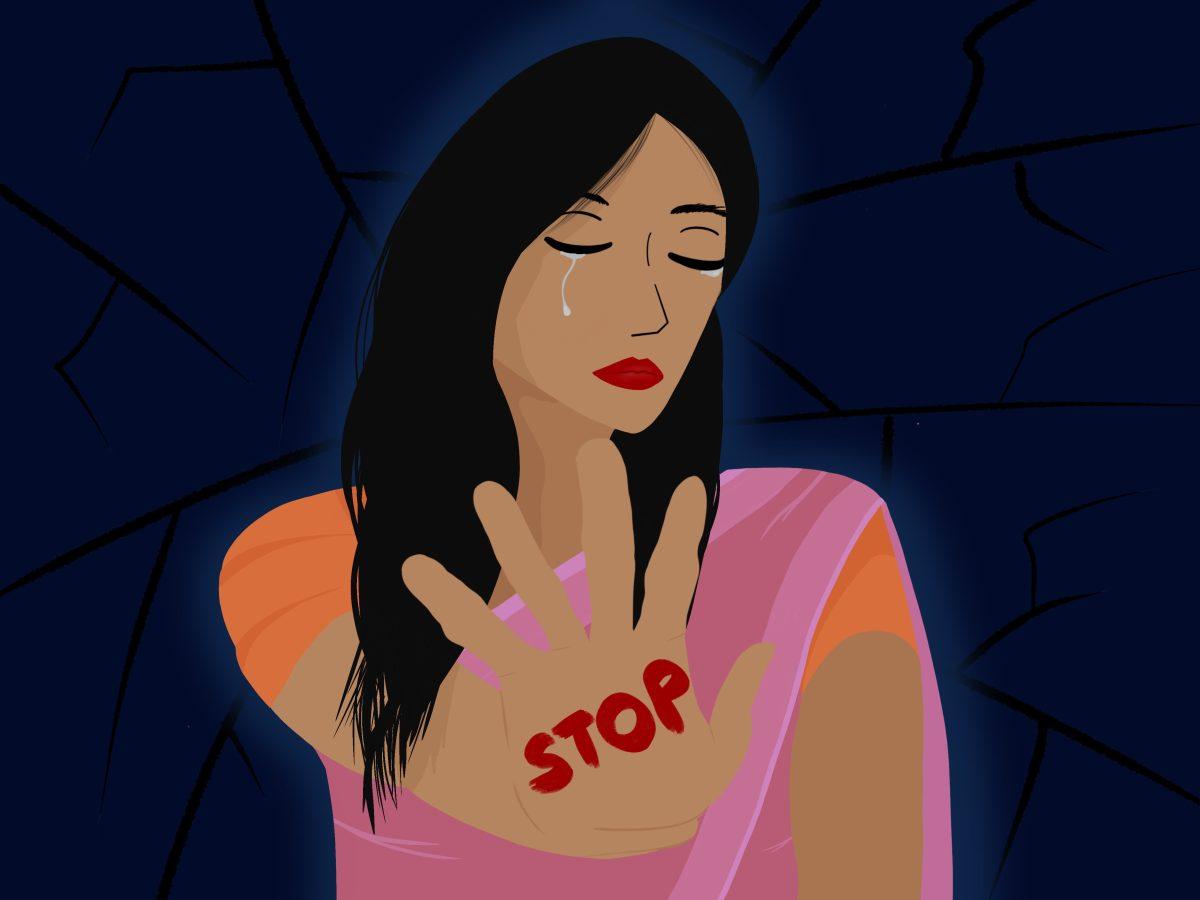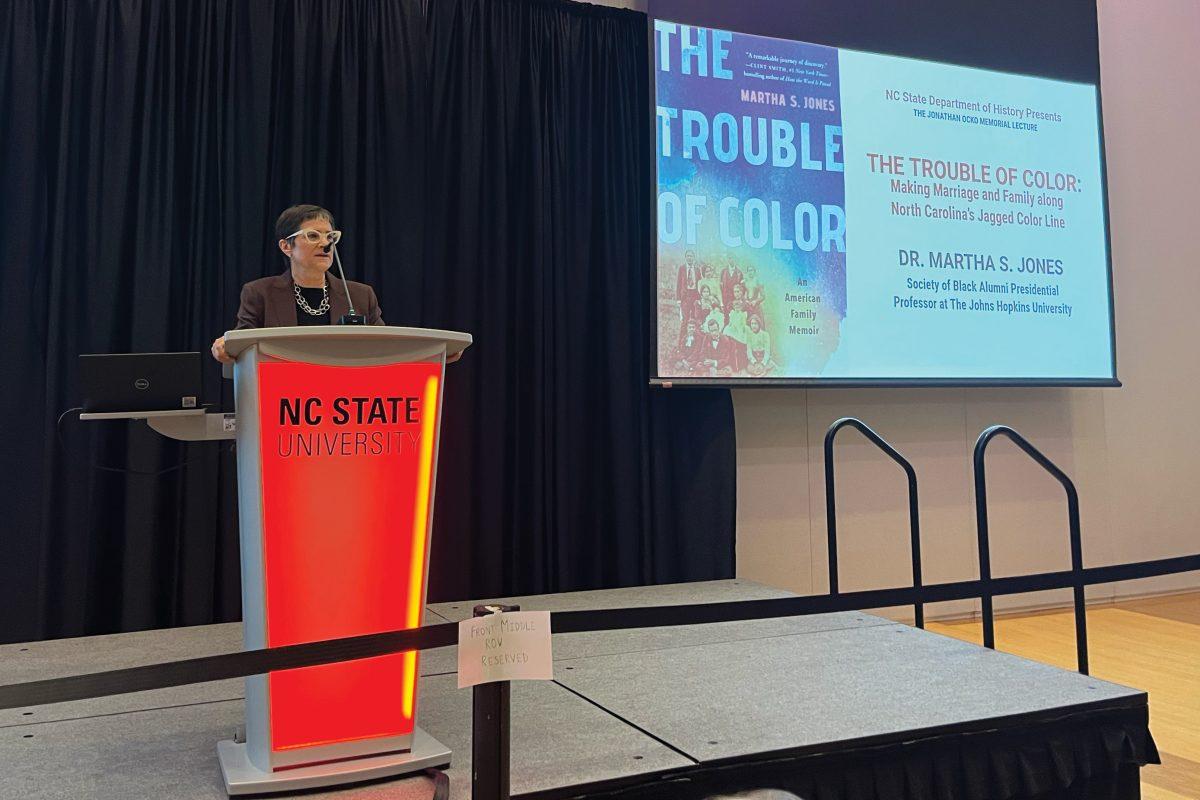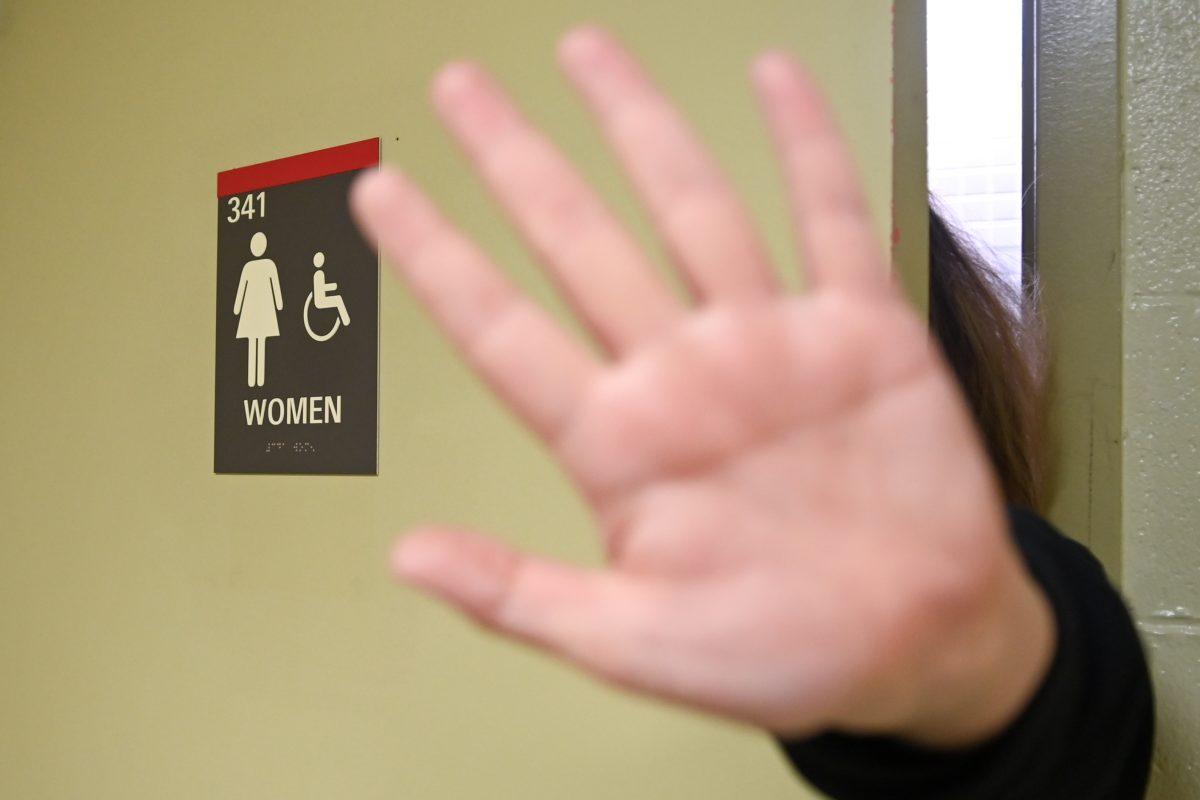Editor’s note: This article contains reference to interpersonal violence.
On April 20, the Women’s Center held a workshop on interpersonal violence in the South Asian community, giving students a safe space to talk about forms of violence and abusive relationships.
The workshop included insightful topics about healthy and unhealthy traits of a relationship, the cycle of abuse, abusive relationships, the concept of patriarchy in the South Asian community and Indian matchmaking. Participants contributed to a lively discussion by asking questions and providing their thoughts on sensitive topics.
Yamini Pandrapagada, a fourth-year studying human biology, and Bhavana Veeravalli, a second-year studying graphic design, hosted the workshop. They both are part of The Movement, an organization whose goal is to end interpersonal violence in the Wolfpack community.
Pandrapagada and Veeravalli kicked off the conversation by diving into the topic of relationships. They asked participants to list any unhealthy and healthy relationship traits that came to mind. Through this, participants learned about the cycle of abuse, what leads to abusive relationships and the barriers that cause victims to stay in the relationship.
Participants were then divided into two large groups to do a spectrum activity. They were given slips of paper with a variety of abusive behaviors written on them and told to rank these behaviors from the most to least harmful. Both groups noticed that physical harm was ranked higher than emotional harm, and it was difficult to sort these behaviors since they are all bad in their own way.
This spectrum activity was the gateway to talking about abuse and interpersonal violence in the South Asian community.
“You see many small behaviors that are very problematic and could escalate quickly, but the problem is that we only associate abuse as physical violence in the South Asian community,” Pandrapagada said. “I definitely see other forms of abuse in the South Asian community, which people don’t talk about.”
Participants learned patriarchal values are associated with abuse because male and female roles in society are oftentimes greatly divided in the South Asian community. Workshop leaders also discussed concepts deemed problematic, such as traditional roles in a household and Indian matchmaking.
Shambhvi Chaturvedi, a second-year studying business administration and foreign language and literature, said it is crucial to raise awareness about interpersonal violence in the South Asian community to end the cycle of abuse.
“It’s not easy to acknowledge,” Chaturvedi said. “Most people think what is happening within their family as something negative, and they don’t like sharing vulnerabilities with others because there is a lot of shaming associated with it. I think it’s really important to break that cycle, because the more we don’t speak out, the more the generations after us will suffer.”
Arfan Warraich, a third-year in international studies and political science, said it is important to facilitate discussions about interpersonal violence in the South Asian community.
“The most important thing our generation can do is be self-aware and know that this is happening,” Warraich said. “We should talk about it more, whether it be with each other or with our parents to normalize that type of conversation between peers and family.”
Pandrapagada said students should seek to understand how to support survivors of interpersonal violence.
“One thing NC State students can do is get familiar with resources on and off campus,” Pandrapagada said. “Going to any type of support center and finding out what you can do to help and learn as much as you can is important for our community.”
A resource specifically for South Asian victims of domestic violence in North Carolina is a nonprofit organization called Kiran. Students who have experienced interpersonal violence can also seek help through on-campus resources, including the Counseling Center and the Women’s Center.
To learn more about the Women’s Center and find out about other workshops they have planned, visit their website.
If you or someone you know is experiencing relationship violence, sexual violence, stalking or any other form of interpersonal violence and are in need of advocacy services, the NC State Women’s Center has trained advocates available to offer crisis intervention, emotional support, resources and referrals. Students can contact the 24/7 Sexual Assault Helpline at 919-515-4444 or email ncsuadvocate@ncsu.edu to schedule an appointment with an advocate.
Advocacy services through the NC State Women’s Center are available for all students inclusive of all gender identities and sexual orientations.
For more information on advocacy services, please visit go.ncsu.edu/supportsurvivors. If you would like to talk to a confidential resource, you can also connect with the NC State Counseling Center at 919-515-2423. You may also visit go.nscu.edu/safe for additional information on resources and reporting options.












